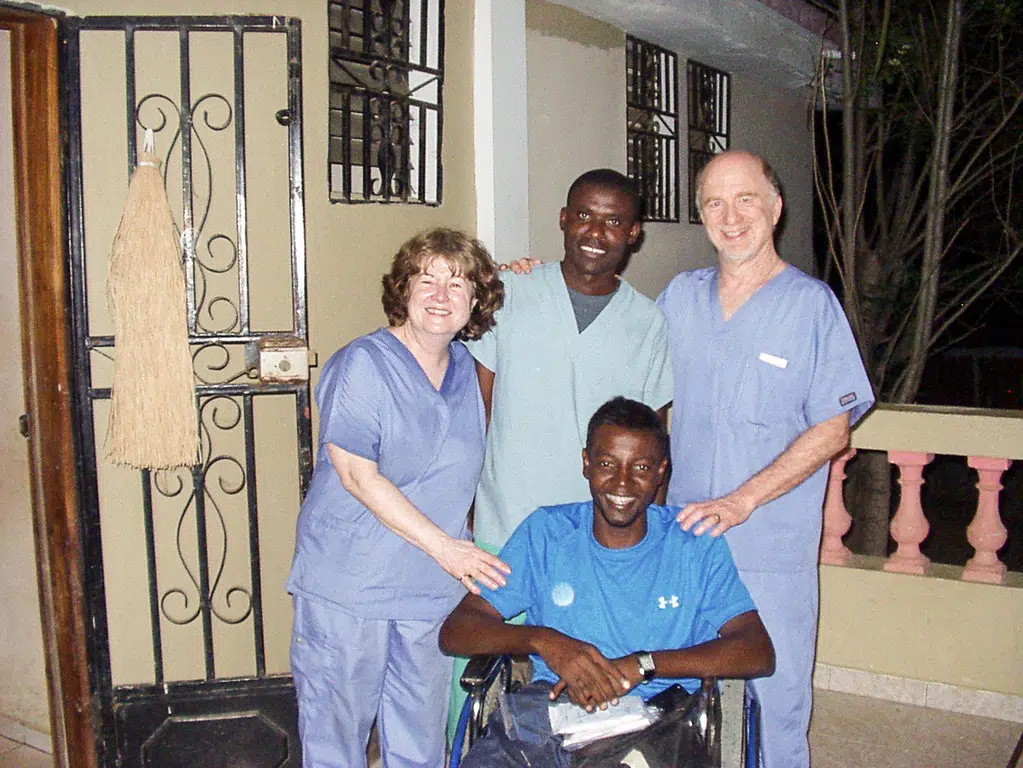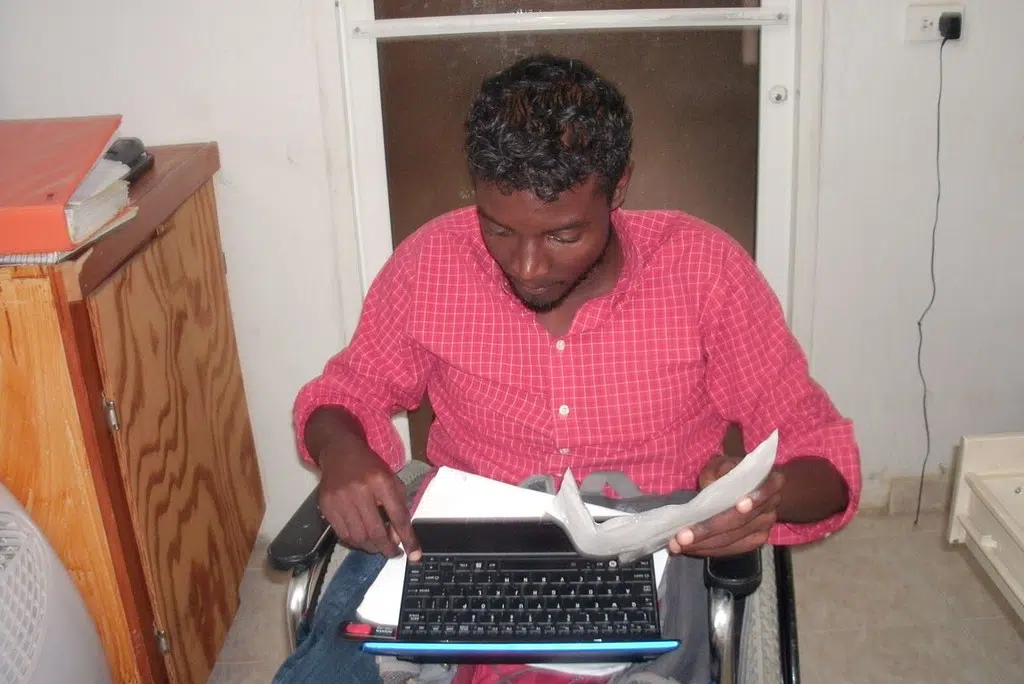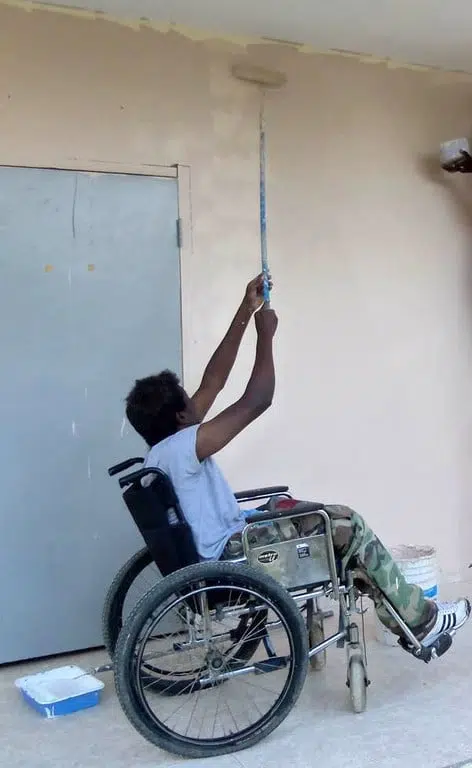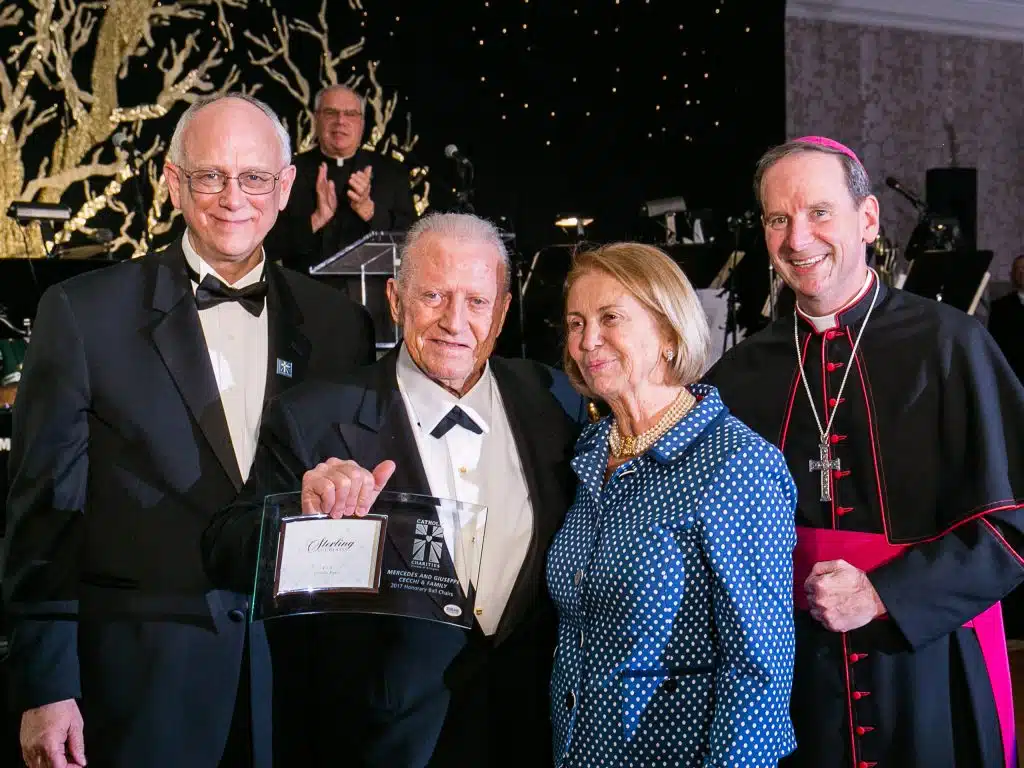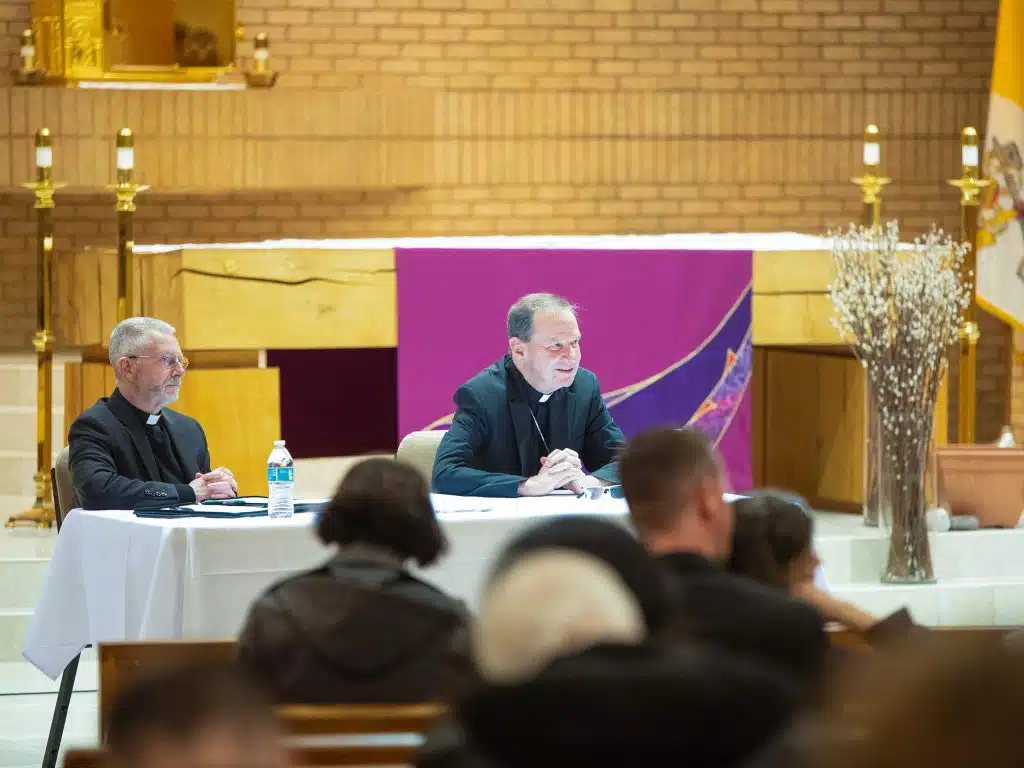The story begins in 1999 with a mango tree in Hinche, Haiti.
Saint Fleur Junior Charles, or simply Junior as most people
call him, was 16 years old when he jumped into a tree, fell
and broke his spinal cord. Nine friends carried him
unconscious to the nearest hospital. When Junior woke up, he
had no recollection of his fateful fall. His mother, Anne
Marie Charles, a housemaid in Port-Au-Prince, 100 miles away,
arrived later that evening and sat by her son’s side.
According to Junior, now 32, she remained there for the next
two years.
Paralyzed from the waist down, Junior spent the next two
years in bed, sometimes his own, sometimes in a hospital. He
said every doctor he and his mother met agreed that Junior
would spend the rest of his life bedridden. He withdrew from
school, and Anne Marie, a single mother, left her job to care
for him. Junior said that during this period, he woke up
every morning hoping he would die.
Meanwhile, Anne Marie, now 69, whom her son describes as a
faith-filled woman, prayed for an answer. Then one day,
Junior said, it came.
Frustrated with local doctors, his mother decided they would
leave Haiti for the island’s more prosperous neighboring
country, the Dominican Republic. Anne Marie reasoned that the
doctors there were better trained and equipped with more
resources at bigger, cleaner hospitals.
Peter Dirr, a board member for Medical Missionaries, a global
health organization based in Manassas that runs St. Joseph’s
Clinic in Thomassique, Haiti, confirmed that Anne Marie’s
instincts were good.
“The people living in the central plateau off Haiti are some
of the poorest people in the Western Hemisphere,” he said.
“In the Dominican Republic, people are poor but many times
better off.”
Junior trusted his mother, but was worried that they lacked
passports and visas.
“How were we going to go to another country?” he asked.
Anne Marie insisted they would find a solution. A week later,
a woman Junior had never met came to the hospital and handed
him an envelope containing $500, a small fortune in Haiti.
Lourde, as he learned she was named, only said that she knew
he needed it.
Anne Marie used the money to hire a truck and driver to take
them across the border. Yet before Junior and his mother
could leave for the Dominican Republic, they had to go
shopping. Anne Marie had no shoes, and Junior had nothing but
bathing trunks.
When the truck Anne Marie hired arrived, she put a mattress
in the back for Junior since he could not sit up or join his
mother in the cabin of the pickup. Then they were off.
“We had no idea where we were going,” Junior said.
The driver pushed through until the truck could go no
farther. Because it was the middle of the rainy season, the
rivers had flooded and turned the dirt roads into thick mud
that the truck could not pass through. Anne Marie went
searching for someone to help carry Junior to shelter. She
found four strangers willing to carry him over two rivers to
the nearest clinic.
Three or four hours later, they met one of the people Junior
credits for changing his life: Father Jack O’Hara, now
parochial vicar at Holy Family Church in Dale City.
“Father Jack really adopted Junior as his godchild,” said
Dirr.
Father O’Hara was serving at the Arlington Diocese’s mission
in the city of Bánica (where Father Keith O’Hare and
Father Jason Weber now serve) when he recognized Junior’s
need for help. He facilitated the medical attention Anne
Marie desperately wanted for her son. But just as in Haiti,
doctors in the Dominican Republic said he would remain
bedridden. Father O’Hara and Anne Marie were not ready to
give up, though Junior said he was convinced he would be
confined to a bed for the rest of his life.
“I didn’t cry because my mother was sadder than I was,” said
Junior. “I had to have courage.”
Then came the fall of 2001 when an American doctor in Santo
Domingo suggested amputating one of Junior’s legs and
operating on the opposite hip to make it possible for him to
use a wheelchair.
The plan worked.
By winter, after Junior had become comfortable in his
wheelchair, Father O’Hara began asking him what he wanted to
do. He said he wanted to finish high school.
Junior went back to high school and graduated in 2006. With
Father O’Hara’s assistance, he went to college, studied
Spanish and English at night and graduated first in his class
with a degree in public administration in 2010.
But even after the operation, his medical woes were not over.
One day in 2008, Father O’Hara noticed that Junior’s eyes
looked strange. He had a fever and tightness in his chest.
Junior had a bone infection that led to sepsis. Father O’Hara
arranged for Junior to go to St. Joseph’s Clinic, where
American doctors from Medical Missionaries were visiting.
After what Dirr described as a “serious surgery,” Junior
rested in the hospital for a week and then at home for
another two.
Three and a half years later, after Junior graduated from
college and could not find a job, he began volunteering at
St. Joseph’s Clinic as an assistant administrator. By July
2012, he was hired full-time while he studied at night to
pursue his law degree.
Father O’Hara said Junior’s outstanding efforts and his
willingness to learn eventually led to his promotion as
hospital administrator. Junior took the initiative to
organize the hospital’s medicine and supplies, which had
previously been kept unalphabetized on the floor, and to
digitize thousands of patient records. He also started a
garden, allowing patients to get staples like beans and
plantains after a visit to the doctor.
Through partnerships with the University of Notre Dame and
Washington University-St. Louis, the hospital now has
programs that provide the community with fortified salt,
clean water and high-protein food supplements for
malnourished children, among other services. Under his
administration, Junior said the hospital sees about 50
patients a day, or 25,000 patients every year. Annually, an
average of 500 babies are born at St. Joseph’s Clinic.
Impressed by his success, Medical Missionaries has brought
Junior to Manassas two summers in a row. Last year, he came
for the organization’s annual fundraising gala. This July,
Dr. Gary and Sharon DeRosa, who are parishioners at All
Saints Church in Manassas, hosted Junior at their home for a
week. During his trip to Virginia, he met with Medical
Missionaries staff, went to doctor and dentist appointments
and spent time with Father O’Hara, who continues to mentor
him.
“In Hinche, I had no spiritual experience. It was my mother
who had a lot of faith,” Junior said. “I remember going to
get my MRI and Father Jack telling me, ‘You need to have
faith.’ Now faith guides me every day. I have no fear. I used
to go to bed without saying my prayers. Now I wake up to pray
daily. I thank God. I thank my mother. I thank Father Jack
because I’m alive. I went through some really terrible times,
but I like my life now.”
Today, Junior spends his days and nights working, praying,
taking care of his mother and writing a book on handicapped
law. He hopes to one day become a judge who rules on cases
related to rights for the handicapped.
“If you have faith, medicine works faster,” said Junior. “You
have hope. No stress.”
Find out more
To learn more about the Medical Missionaries of Manassas or
make a donation, go to medmissionaries.org. To donate to
Bánica Mission, go to banicamission.com/donate.
Stoddard can be reached at [email protected].
